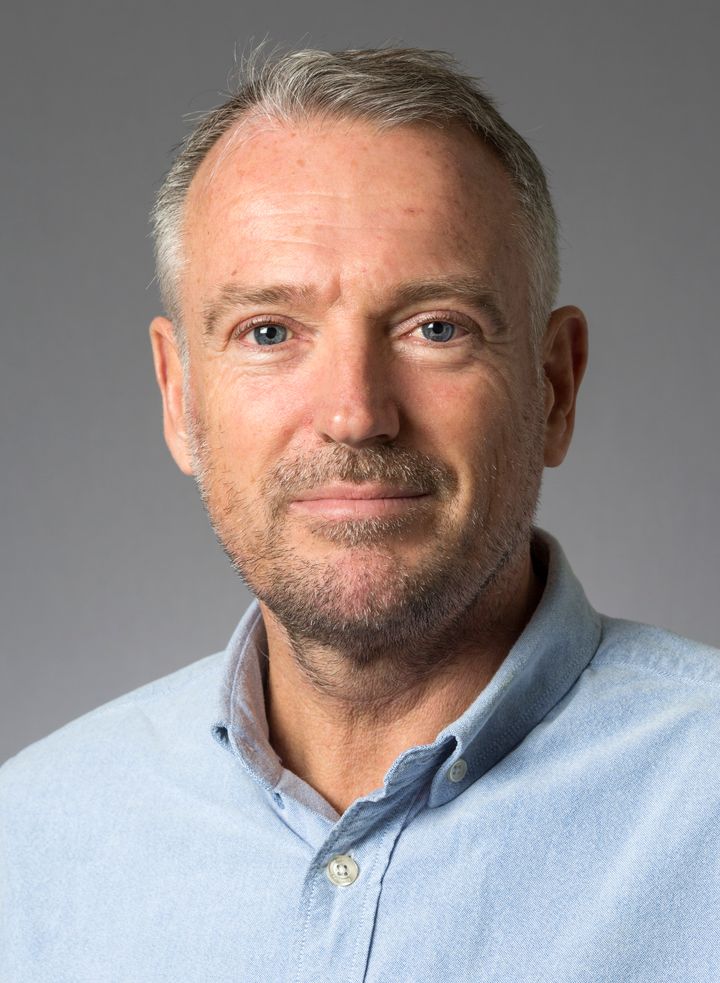Danish basic research behind international medical breakthrough: New oral treatment may prevent dementia
12.11.2025 12:59:02 CET | Aarhus Universitet: Health | Press release
Researchers from DANDRITE at Aarhus University have played a central role in developing a new oral treatment that, for the first time ever, has shown promising results in a clinical trial involving patients – a breakthrough that appears capable of preventing and slowing the progression of frontotemporal dementia.

The first clinical trial in patients has just been completed and shows that the treatment can restore levels of the protein progranulin to normal in individuals carrying a gene mutation that typically leads to frontotemporal dementia (FTD).
“This means we now have hope for a treatment that could potentially prevent the development of this form of dementia in people at genetic risk – thereby conceptually transforming the future of dementia therapy,” says Professor Anders Nykjær.
He is one of the leading researchers who helped uncover the functions of the sortilin receptor and how it regulates the breakdown of the protein progranulin in nerve cells – a process that plays a central role in the development of frontotemporal dementia (FTD).
“For several years, we have been studying the role of the sortilin receptor in neurodegeneration. Seeing this knowledge translated into a treatment that now shows promising clinical results is a major step forward for the field – and a testament to the vital importance of basic research for the development of new therapies.”
FTD is the most common cause of dementia in people under the age of 60 and progresses rapidly. At present, there are no approved treatments.
The new treatment, VES001, has been developed by Vesper Bio with contributions from Anders Nykjær and international collaborators. Vesper Bio is a Danish biotechnology company founded by Anders Nykjær and Mads Kjølby. The treatment is based on a targeted mechanism that selectively inhibits the sortilin receptor to prevent the breakdown of progranulin, without disrupting other vital brain functions.
The trial demonstrated normalisation of progranulin levels in cerebrospinal fluid and a favourable safety profile, with no serious adverse effects in patients who have not yet developed symptoms of the disease. The next step will be a larger clinical trial involving symptomatic patients.
Q&A on the Disease and the Treatment
What is frontotemporal dementia (FTD)?
FTD is a group of brain disorders that affect the frontal and temporal lobes. It impacts behaviour, language, and the ability to manage everyday activities. It is the most common cause of dementia in people under the age of 60 and progresses very rapidly. The disease is also known as “Bruce Willis dementia”, as actor Bruce Willis has publicly shared that he is living with frontotemporal dementia.
What is FTD-GRN?
FTD-GRN is a form of FTD that can be caused by mutations in the progranulin gene (GRN). This leads to low levels of the protein progranulin, which is essential for the health of nerve cells.
What is VES001?
VES001 is a new oral treatment developed by the Danish company Vesper Bio. It is designed to raise progranulin levels by inhibiting the sortilin receptor, without affecting other brain functions that are important for health.
Why is this breakthrough important?
This is the first time an oral treatment has been shown to normalise progranulin levels in people with GRN mutations. It could potentially prevent them from developing symptoms of FTD.
What did the trial show?
In the Phase Ib/IIa study, progranulin levels increased by more than 95% in cerebrospinal fluid. The treatment was safe and well tolerated, with no serious side effects.
What are the next steps?
Vesper Bio plans to launch a Phase IIb/III trial in 2026 to test the treatment’s effect in people with symptoms of FTD-GRN.
What role has Danish research played?
Danish researchers have contributed to the fundamental understanding of the sortilin receptor’s role and the concept of selective inhibition, which forms the scientific basis for VES001.
When might patients expect a treatment?
There are still several clinical stages to complete before approval can be considered. It is too early to give a timeline, but these results represent an important step towards a possible treatment.
Keywords
Contacts
Anders NykjærDANDRITE, Institut for Biomedicin, Health
Tel:28992384an@biomed.au.dkRikke LindhardResearch Group Coordinator and Communications OfficerDANDRITE, Dept. of Biomedicine, Aarhus Universitet
Tel:20975788rsl@dandrite.au.dkDANDRITE is an international research centre located at Health, the Faculty of Health at Aarhus University, with research and education as its main activities. The faculty offers a wide range of health-related degree programmes, including medicine, dentistry, sports science, and public health. Health comprises five departments, approximately 4,400 students, 1,500 staff members, and 600 PhD students.
Alternative languages
Subscribe to releases from Aarhus Universitet: Health
Subscribe to all the latest releases from Aarhus Universitet: Health by registering your e-mail address below. You can unsubscribe at any time.
Latest releases from Aarhus Universitet: Health
Alkohol forklarer de fleste mistænkte drugging-sager19.2.2026 08:11:59 CET | Pressemeddelelse
Den første danske opgørelse af anmeldte drugging-sager viser, at mange episoder kan forklares ved alkoholindtag alene.
Tidlig pubertet kan måske øge risikoen for mistrivsel og større forbrug af rusmidler17.2.2026 13:52:32 CET | Pressemeddelelse
Tre studier fra Aarhus Universitet peger på en sammenhæng mellem tidlig pubertet og mistrivsel blandt unge. De unge, der ramte puberteten tidligt, havde større risiko for at få psykiske udfordringer og et højere forbrug af alkohol, cigaretter og stoffer.
Hendrik Vilstrup modtager Tysklands største hæder inden for leverforskning11.2.2026 09:30:01 CET | Pressemeddelelse
Professor Hendrik Vilstrup fra Institut for Klinisk Medicin modtager Lucie Bolte-prisen 2025, som er den højeste udmærkelse inden for leverforskning i Tyskland. Prisen uddeles hvert andet år af Lucie Bolte-stiftelsen og er på 15.000 euro.
Frist 15. marts: Du kan søge medicin i Herning allerede nu10.2.2026 12:46:05 CET | Pressemeddelelse
Unge, der søger ind på medicinuddannelsen via kvote 2, har kun få uger til at vælge uddannelsesforløb, der giver dem ret til at læse kandidatdelen i Herning fra 2029. Fristen er 15. marts – og valget træffes allerede ved ansøgningen.
Nyt studie viser, at 14 psykiatriske lidelser deler genetiske rødder9.2.2026 11:55:48 CET | Pressemeddelelse
Et internationalt forskerhold har lavet den hidtil mest omfattende kortlægning af, hvordan genetiske faktorer – både dem, der er fælles, og dem, der er unikke – spiller ind i en lang række psykiske lidelser.
In our pressroom you can read all our latest releases, find our press contacts, images, documents and other relevant information about us.
Visit our pressroom